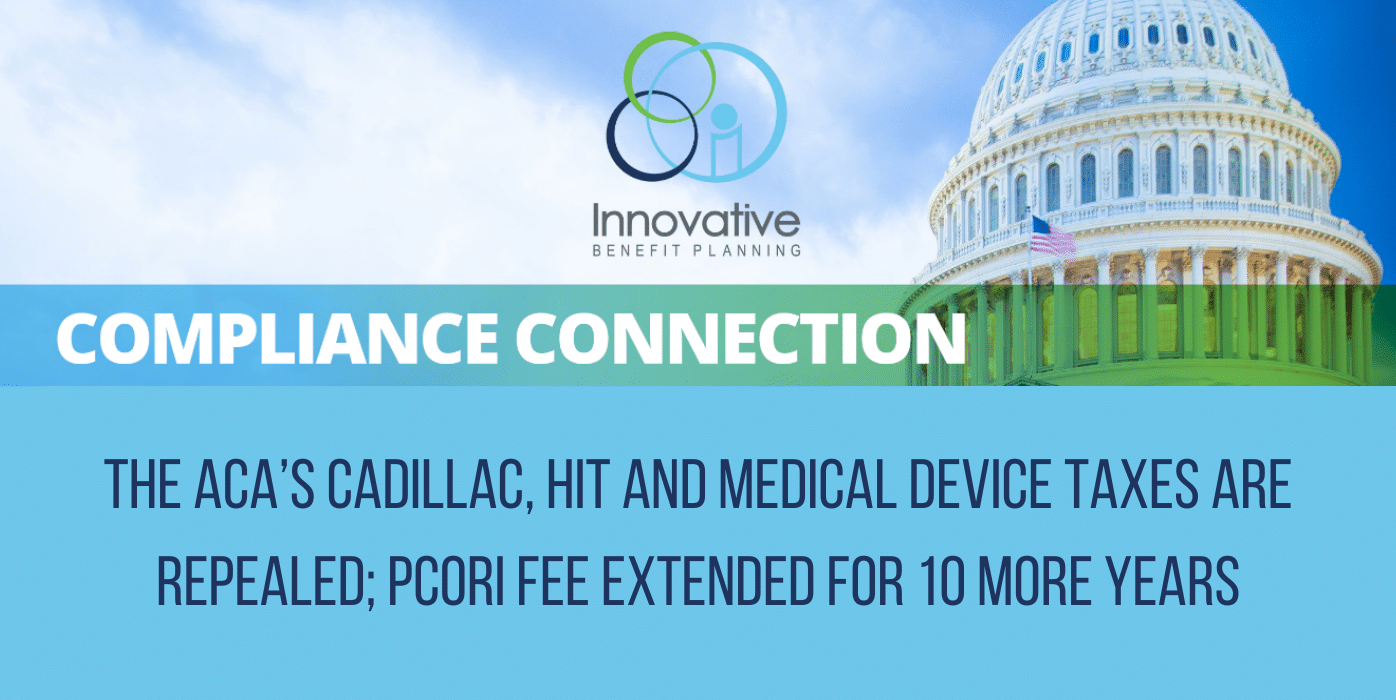The ACA’s Cadillac, HIT and Medical Device Taxes Are Repealed; PCORI Fee Extended for 10 More Years

On December 20, 2019, the President signed a $1.4 trillion spending bill that will fund the federal government through September 30, 2020. The bill signed by the President specifically includes the repeal of three major taxes that fund the Affordable Care Act (ACA), including the “Cadillac” tax, the health insurance tax (HIT), and the medical device tax.
The excise, or “Cadillac,” tax is a provision of the 2010 ACA law that assesses employer penalties for offering health plans exceeding a certain value, expected to take effect in January 2022. While the Cadillac tax was designed to penalize high-value plans, analyses showed that even moderately priced plans stood to be affected by its implementation. The Cadillac tax has been unpopular with both lawmakers and employers, and its implementation has been repeatedly delayed. With this spending bill, the tax has been fully repealed and will not take effect.
Not only does the spending bill repeal the “Cadillac” tax, but it repeals two other significant taxes in the ACA: the health insurance tax; and the medical device tax
The health insurance tax, or HIT, assesses an annual tax on health insurance companies, while the medical device tax affects medical device manufacturers. Although the assessments are made on the insurance companies and medical device manufacturers, the costs pass through to the consumer resulting in higher insurance premiums and costs for medical devices.
Additionally, the spending bill grants an additional ten years of funding for the Patient-Centered Outcomes Research Institute (PCORI), an annual fee that health plans pay. The PCORI fees were set to run out this year. Employers with self-funded health plans and health insurers may not be able to avoid this fee in the future.
Since the “Cadillac” tax is not currently in effect, the new law bars this provision of the ACA from ever being effective. The HIT, already in play for 2020, is set for implementation on January 1, 2021.
The removal of these taxes will benefit employers when determining plan design choices in the future. Additionally, they may enjoy lower rate increases on fully-insured carrier plans, as the carriers will no longer expect to bear the burden of this tax.
As always, your Innovative team will help you understand how these changes will affect your plans and strategy going forward.
This Compliance communication is not intended to be exhaustive nor should any discussion or opinions be construed as legal advice. Readers should contact legal counsel for legal advice.
Categories
Archive







